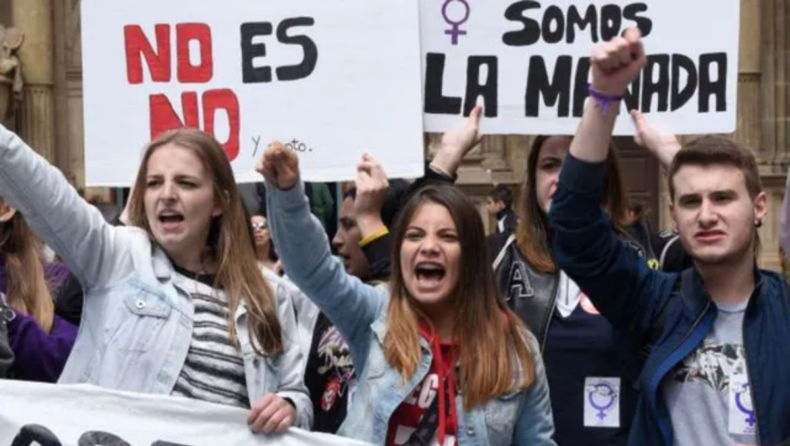Rape victims will not have to prove that they have been subjected to violence or intimidation
This law ‘only yes, means yes’ as it is named, the bill was passed in the parliament with a majority of 205 votes with 141 votes against it.
Toughened rape law comes after a gang rape that woke and shook the country, on august 25. This law will require explicit consent for sex, it also involves a reform of Spain’s criminal code that has redefined the definition of rape as sex without clear consent.
Rape victims will no longer have to prove that they have been subjected to violence or intimidation.
A statement comes from the equality minister Irene montero, “at last our country legally recognises that consent is what needs to be at the centre of all our relationships”.
“From now on no woman will have to prove that violence or intimidation was used for it to be recognised for what it is.”
What set the momentum for this law?
the root of this law is buried in a notorious gang rape case in 2016. An 18-year-old woman was gang raped by five men at the bull-running festival in Pamplona, northern Spain.
These men referred to themselves as the “wolf pack” and were initially convicted of “sexual abuse” and not rape.
Two men even filmed the assault, in the video, the woman was silent and passive. This fact was considered consent by the court.
In the absence of any evidence of violence, the offense was dismissed with lighter penalties. Under the new law, these criteria don’t exist.
The mother of the 2016 victim said in a statement: “This law is the result of the bravery, perseverance and dignity of a girl who knew how she wanted to live without being judged by anyone, and who decided to go ahead so that we would all be aware of the miserable road that too many victims have had to, and continue to, go down. This is something we all have to change together.”
Justice for rape victims

The demand for reform began with the nationwide protest against the initial verdict.
Pedro Sanchez, socialist prime minister, and self-described feminist made a vow to introduce a law that would clearly define consent and remove ambiguity in rape cases when he assumed office.
Reacting to the nationwide protest, the supreme court 2019 overturned the verdict and sentenced the five rape convicts to 15 years of jail term.
“only yes, means yes” also incorporates the rules against street harassment, focuses on expanding emotional and sexual education in schools, and also strengthing protection and compensation for victims of sexual violence.
This law was a “long-awaited” demand of the feminist movement, as described by Marisa solo, head of Fundacion Mujeres.
“We’re hoping it will bring about a behavior change” both within Spain and beyond, she told AFP.
As told by the government the legislation is based on the 2011 Istanbul convention recommendations on preventing violence against women.
Such a law continues to be something exceptional in Europe. Only 12 out of 31 European countries have redefined the legal definition of rape to sex without clear consent.
Some of the countries are Belgium, Croatia, Denmark, and Sweden.
This cannot be considered as the endpoint, because the other nations define it by other parameters such as whether violence or threat was given.
The concept of consent also becomes important as the cases of marital rapes are rising and justice in this matter is often sealed.
This stronger law makes Spain a pioneer in the fight against violence and atrocities against women or rape victims, in 2004 it approved Europe’s first law that specifically focused on domestic violence.













